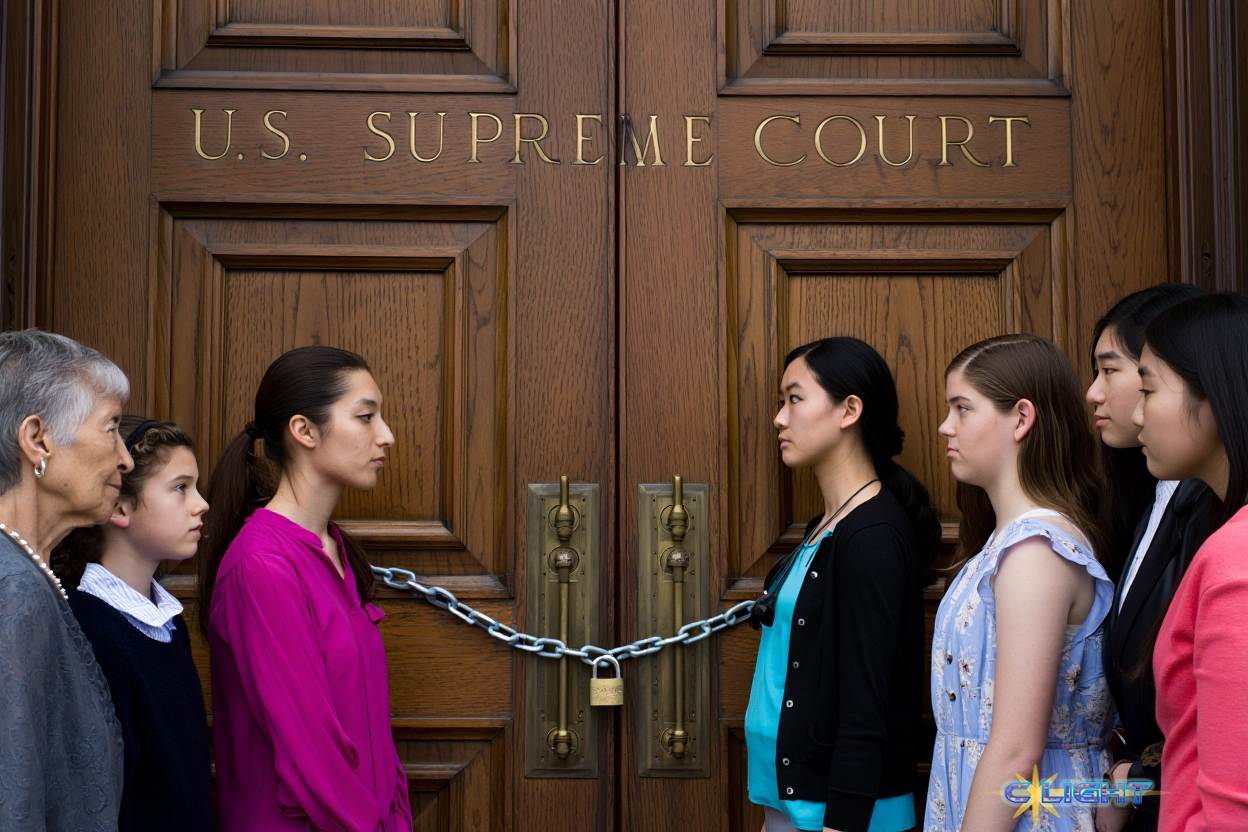While America was focused on the political firestorms of the week, the Supreme Court quietly delivered a decision that could prove to be one of the most consequential for healthcare in a generation. It was a case most people didn’t know existed, focused on a legal technicality most wouldn’t understand. But the outcome was brutally simple. In a 6-3 ruling, the court declared that you, as a Medicaid patient, no longer have the right to sue a state in federal court if it blocks you from seeing the qualified doctor of your choice.
This seemingly arcane decision was not just about legal procedure; it was a green light. It was the starting pistol for dozens of Republican-led states to do what they have long wanted to do: defund Planned Parenthood at the state level, where the cuts will hurt the most vulnerable.
The case that just reshaped American healthcare didn’t begin in a corporate boardroom or a political strategy session. It began with a woman named Julie Edwards in South Carolina. Living with diabetes, a condition that makes pregnancy dangerous, she relied on her local Planned Parenthood for birth control. But in 2018, Governor Henry McMaster launched a political crusade, ordering the state to cut off all Medicaid funding to the organization. His rationale was stark: paying for any service at Planned Parenthood, he claimed, “results in the subsidy of abortion and the denial of the right to life.”
It was a purely ideological fight. The total amount of funding at stake was a mere $90,000 a year for the entire state. But for patients like Julie Edwards, it was a lifeline. She sued, arguing that federal Medicaid law explicitly guaranteed her the right to choose any qualified provider. And she won. A federal judge agreed with her. A bipartisan panel of the 4th U.S. Circuit Court of Appeals agreed with her, with a Reagan-appointed judge powerfully writing that the law was intended as a “modest corrective” to the imbalance in healthcare choice between the rich and the poor.

But the Supreme Court’s conservative majority disagreed. In an opinion authored by Justice Neil Gorsuch, the court didn’t rule on the merits of the “free choice” provision. Instead, it slammed the courthouse doors shut. It ruled that the law was written in such a way that individual citizens and providers have no standing to bring a lawsuit to enforce their own rights. That power, Gorsuch argued, belongs to the federal government (which is unlikely to sue) or to “state administrative processes” that patient advocates say are toothless and ineffective.
In a scathing dissent, Justice Ketanji Brown Jackson wrote that the decision will cause “tangible harm to real people” by stripping them of the “only meaningful way of enforcing a right that Congress has expressly granted to them.”
That harm is now set to spread with alarming speed. The quiet ruling has armed state legislatures with a powerful new weapon. According to a recent analysis, 32 states still have old, unenforceable laws on their books that could be used as a pretext to kick Planned Parenthood out of their Medicaid programs. For the roughly 60 percent of America’s LGBTQ+ population and the millions of low-income women and families who live in these states, the threat is now immediate.
This is not happening in a vacuum. It is the judicial “one-two punch” that conservatives have been waiting for, landing at the same time the Trump administration is trying to withhold Title X family planning funds and the GOP-led Congress is debating a budget bill that would also defund the organization. This court decision provides the legal cover for a full-scale, state-by-state assault.

The consequences will be devastating, and they go far beyond abortion, which is already paid for with state, not federal, funds. Nearly half of all patients who walk through the doors of a Planned Parenthood clinic rely on Medicaid. They are there for cancer screenings, STI tests, contraception, and primary care. In many rural counties, the local Planned Parenthood is one of the only accessible and affordable healthcare providers for miles. When these clinics close, the “tangible harm” Justice Jackson warned of will not be an abstract legal concept; it will be a delayed diagnosis, an untreated infection, an unintended pregnancy.
A quiet, technical ruling, born from a seven-year political crusade in South Carolina, has now opened the floodgates. While Washington was distracted, the Supreme Court handed a victory to politicians who believe they know better than patients, and in doing so, it has lit a fire that is almost certain to scorch the healthcare landscape for the poorest and most vulnerable Americans for years to come.
Discover more from Clight Morning Analysis
Subscribe to get the latest posts sent to your email.










